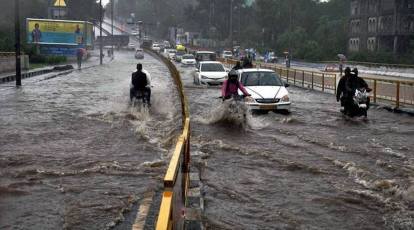Monsoon season is ending. Due to the returning monsoon, some districts of Madhya Pradesh have been receiving heavy rains for the past few days. Now it has started affecting the crops. Ripe crops standing in the fields are getting ruined due to water logging and farmers are unable to do anything. It is hoped that now the rain will stop and the sun will shine, the crop will revive.
Heavy rains in recent days wreaked such havoc in various districts of Madhya Pradesh that farmers’ soybean crops were ruined. Farmers are not able to do anything. Due to continuous rain falling on the ripe crops, there was water all around. The fields took the form of ponds. In such a situation, the farmer seems to be worried.
Due to heavy rains for the last five consecutive days, the rivers and streams are in spate. The ponds are completely filled. Rampura Dam in Ashta is also at the end of reaching its target. If the situation continues like this, Rampura Dam will soon be filled to the brim and overflow will start.

Farmers suffer the most due to heavy rains
- Farmers suffer the most. Whether the crop has been harvested and is lying in the field or is seen rotting in the barn. The farmer is making every effort to save his crop.
- Right now the farmer who has harvested his crop is in a little profit. However, this time the production of soybean is decreasing. The crop that is standing on top. That too is on the verge of ruin.
- Due to continuous rain, farmers are not able to harvest their fields. Even if you cut it, there is the risk of rotting. The havoc of the farewell rain is such that the farmer has reached complete ruin.





